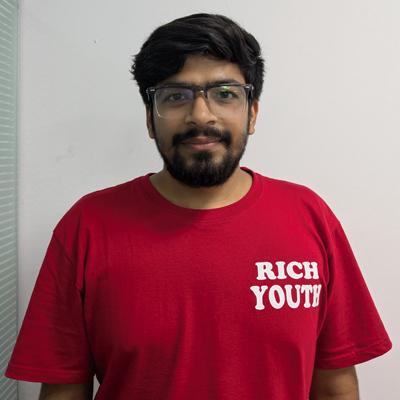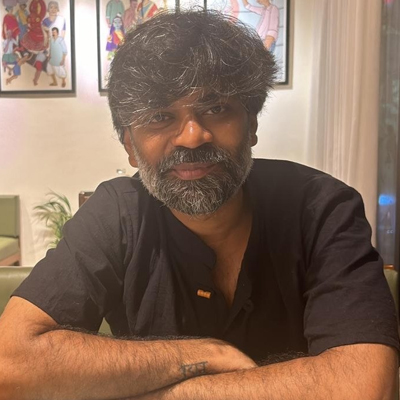![]() Prashasti Yadav
Prashasti Yadav
Water scarcity is one of the most pressing challenges facing agriculture today, especially in countries like India, where over 90% of the available freshwater is consumed by the agricultural sector.
With climate change exacerbating water shortages, erratic rainfall patterns, and prolonged droughts, the current reliance on traditional, water-intensive farming practices has become unsustainable. Agriculture globally accounts for nearly 70% of all freshwater withdrawals, putting immense pressure on dwindling water resources.
In India, the situation is particularly alarming. A report by NITI Aayog in 2018 estimated that 600 million Indians face high to extreme water stress, and around 200,000 people die annually due to inadequate access to safe water. Groundwater, which sustains over 60% of the country’s irrigation needs, is rapidly depleting, with studies showing that many regions could face severe shortages in the near future.
Traditional irrigation methods like flood irrigation result in 30-50% water loss due to evaporation and runoff. Crops like rice and sugarcane, which are water-intensive, are often grown in areas already struggling with water shortages, further compounding the issue. As the impacts of climate change intensify, farmers are increasingly vulnerable to crop failures, declining soil health, and reduced yields.
So, how can water-scarce regions, such as India, transition from traditional water-intensive farming practices to water-efficient agricultural systems to ensure long-term sustainability and food security amidst increasing climate variability and declining freshwater resources?
This article explores the need for efficient water management in agriculture and provides an overview of various techniques and technologies that can help reduce water consumption by up to 50-70%, making farms more resilient to water scarcity.
Why Water Efficiency is Important for Farming
Water is the lifeblood of farming, but with over 70% of global freshwater used for agriculture, it’s clear that the current system isn’t sustainable. In countries like India, where freshwater is in limited supply, traditional irrigation practices are leading to widespread groundwater depletion.
Flood irrigation, for example, often results in large amounts of water wasted through evaporation and runoff, particularly in areas growing thirsty crops like rice and sugarcane.
But it’s not just about saving water. Using water efficiently is directly linked to healthier soil and better crop yields. When water is used efficiently, farms are less vulnerable to droughts and erratic rainfall, which are becoming more common due to climate change.
Moreover, over-irrigation damages soil by leading to waterlogging, which disrupts the oxygen flow and depletes nutrients.
Efficient Irrigation Techniques
Below are some of the most effective irrigation techniques that are helping farmers make better use of water while enhancing productivity.
Drip Irrigation
One of the most effective ways to reduce water consumption on farms is by using drip irrigation.
Unlike traditional methods that flood fields, drip irrigation delivers water directly to the plant roots, minimizing evaporation and reducing water use by up to 70%. It is extremely useful in hot climates where water loss through evaporation can be substantial.
Building on the effectiveness of drip irrigation, the SWAR (System of Water for Agriculture Rejuvenation) system has been developed to further enhance efficiency. SWAR uses buried moisture diffusers to release water at the root level slowly. This reduces overall water use by an additional 40% compared to conventional drip systems. More impressively, it also increases crop yields by up to 10%, making it a win-win for farmers.
However, farmers need to be trained on how to use these systems best to avoid issues like over-irrigation, which is still common even with drip systems. SWAR’s moisture sensors help address this, but adoption is key.
Direct Seeded Rice (DSR)
Rice is one of the thirstiest crops around, consuming a huge amount of water. Traditionally, paddy fields are kept flooded for much of the growing season, wasting vast amounts of water. With DSR, farmers can plant rice directly into dry soil, cutting water use by up to 40%.
DSR also improves soil health. Flooded rice paddies are prone to waterlogging, which depletes the soil of nutrients and requires more fertilizers.
By eliminating the flooding process, DSR allows the soil to breathe and retain its structure, reducing the need for chemical inputs. That’s a big plus for the environment and for the farmer’s bottom line.
Rainwater Harvesting
While modern irrigation techniques play a big role in improving water efficiency, sometimes the best solutions are the simplest.
Rainwater harvesting is a traditional method that’s making a comeback as farmers look for ways to supplement their water supply during dry periods. By collecting and storing rainwater in tanks or ponds, farmers can have a reliable water source to draw from during droughts or when groundwater is scarce.
What’s great about rainwater harvesting is that it’s relatively easy to implement and can be scaled to suit both small farms and large agricultural operations.
Plus, when used in combination with other water-saving techniques like drip irrigation, it ensures that every drop of water is used efficiently.
Using Technology for Better Water Management
Technology is rapidly transforming the way farms manage water. Soil moisture sensors and AI-driven irrigation systems are helping farmers monitor their water use in real-time. These technologies provide real-time data on crop water needs, soil moisture levels, and weather conditions, ensuring that farmers irrigate their crops based on precise needs rather than guesswork.
Roots Foundation’s Project Bhoomi and Technology Transfer Program have pioneered the use of digital tools in farming. With tools like soil health apps and farmer-centric digital platforms, they’ve provided over 10,000 farmers with the knowledge to use technology to reduce water waste. For example, 150 WhatsApp groups were created to give farmers instant access to agricultural guidance, including water management solutions.
However, high initial costs and a lack of access to these technologies remain a challenge for smallholder farmers. Government subsidies and NGO support are essential to overcome these barriers, as highlighted in Roots Foundation’s training initiatives.
Choosing Water-Efficient Crops
One of the most impactful ways to conserve water is by selecting crops that are naturally more water efficient.
For example, instead of water-guzzling crops like sugarcane and rice, farmers could grow drought-tolerant varieties such as millets, pulses, and oilseeds. These crops require less water and are better suited to India’s increasingly arid environments.
Crop diversification and rotation can also play a role in water conservation. Alternating between water-efficient and water-intensive crops helps maintain soil moisture and reduces the frequency of irrigation.
Organic farming techniques, which avoid chemical inputs, further enhance soil’s ability to retain water, providing additional benefits.
Organic Farming vs. Conventional Farming
When comparing organic farming vs conventional farming, the benefits of organic practices are clear when it comes to water efficiency.
Organic farming enhances soil structure and boosts its organic matter content, which improves water retention. In fact, organic farms often need 30%-60% less water than conventional farms.
Conventional farming, on the other hand, relies heavily on chemical fertilizers and pesticides that degrade the soil’s ability to hold water. This not only increases the farm’s water needs but also leads to more frequent irrigation. Organic methods, such as composting and mulching, help retain soil moisture and reduce water loss, leading to more sustainable and resilient farming.
Conclusion
Water scarcity is a critical challenge facing agriculture, but there are solutions. Techniques like drip irrigation, Direct Seeded Rice, and rainwater harvesting can help farmers reduce their water consumption while maintaining productivity. Technology is also playing a key role in improving water management, allowing farmers to monitor and adjust their water use in real-time.
Switching to water-efficient crops and adopting organic farming practices can further enhance water conservation efforts. In the end, these changes aren’t just about using less water, they’re about ensuring the long-term viability of farms and protecting the environment for future generations.
FAQs
Why is water efficiency important for farming?
Water efficiency is crucial for ensuring sustainable agricultural practices. With increasing water scarcity due to climate change and over-extraction, efficient water use helps maintain crop productivity while conserving this vital resource.
How does drip irrigation help save water on farms
Drip irrigation delivers water directly to plant roots, minimizing evaporation and water loss. It can save up to 70% of the water used in conventional irrigation systems like flood irrigation.
How can farmers improve soil health to retain more water?
Organic farming practices such as adding organic compost, rotating crops, and reducing chemical inputs improve soil structure and increase its ability to retain moisture. Healthier soil reduces the need for frequent irrigation.
What is rainwater harvesting, and how does it benefit farms?
Rainwater harvesting involves collecting and storing rainwater for future use. It helps reduce reliance on groundwater and ensures water availability during dry periods, particularly in regions with variable rainfall.






















